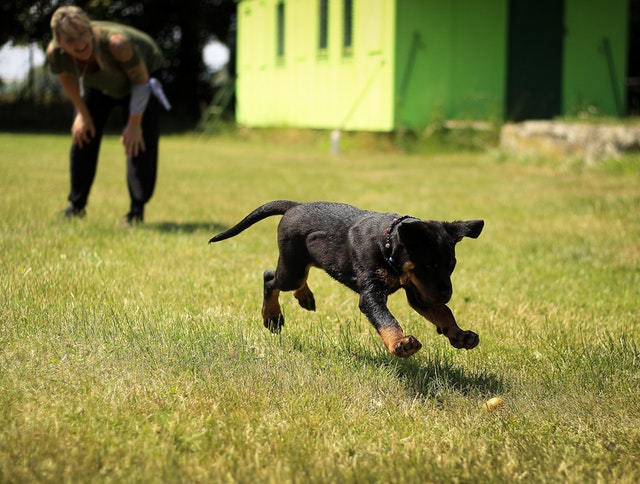
19 Apr Beginner’s Guide for Dog Training
Obtaining a dog is a good thing. Dogs are more than pets as they build an unmatched relationship with their owners. As such, they need to undergo dog training to enhance their skills. It is worth noting that training is part of a dog’s basic needs.
You can begin training your dog to perform various actions like sitting, staying in one spot, coming, going to their crate, and going potty outside. These are things you can train your dog to do when you are a beginner. However, you will see other well-trained dogs that perform various tasks and wonder how yours can get there. Well, you are in the right place. This article discusses essential tips on training your dog.
Tips on dog training
In the first days, training your dog can pose a few challenges. This is because dog training is a huge project that requires you to follow several steps to master the tricks. Here are essential tips for training your dog.
Join obedience classes
Training requires lots of practice to achieve good results. Spending more time and effort learning the whole process will help you become better. For first-time dog owners, getting a private dog trainer is ideal. Essentially, you can enroll in a training class to learn a few tricks. The smaller the dogs are the easier it is for them to grasp things.
Puppies will begin in puppy kindergarten then head to join an obedience class once they grow older. A class should include 8-10 puppies, a handler, and an instructor. This ratio allows the trainer to deliver ample attention to each team and respond to concerns.
Stay positive
Dogs respond to fun activities. Therefore, you should incorporate fun in your training to ensure effective results. Harsh correction methods may work once in a while. But mostly, dogs won’t recognize your anger.
Positive corroboration allows your dog to know how pleased you are with them, thus repeating the same behavior the next time. Respond by giving rewards like toys or their favorite treats. Doing this will enable them to work harder to please you while hoping for a reward.
Shorten the training sessions
Start training your dogs about good manners after it has settled in the household. By keeping your dog training sessions short, the dogs learn much faster. You can spread the training time throughout the day.
Rewards
Using small treats is the best way to reward your dog during the training. Soft treats during training are ideal. You can avoid those hard and crunchy bites that take a long time to chew. Doing this can help prevent precious wasting time.
Make sure you give the treats immediately the dogs complete the desired behavior. The faster you recognize your desired behavior, the easier it is for your puppy to understand the teachings.
Cue words
During dog training, saying a command word just once is recommended. If you repeat a cue word a couple of times, your dog will not sharpen their skills as fast.
Train before meals
Make sure to schedule your dog training before meals so that the dog pays close attention to the training instructions.
Train with no distractions
Training dogs requires all your attention. That is why it is essential to train without any interruptions or rush. You can start by turning off your phone to ensure you devote yourself to training. Any distraction can take away the attention of your dogs.
Consider the dog
If the dog is not feeling well or dull, don’t train them. Also, don’t train dogs when playing vigorously since their attention will have switched.
Don’t be angry
Once a dog frustrates you in the middle of training, end the session without becoming angry. Anger causes many dogs to be nervous, thus focusing their attention elsewhere.
If you are a beginner, training your dog can pose a few challenges. After some time, your patience and persistence will bear fruits.


